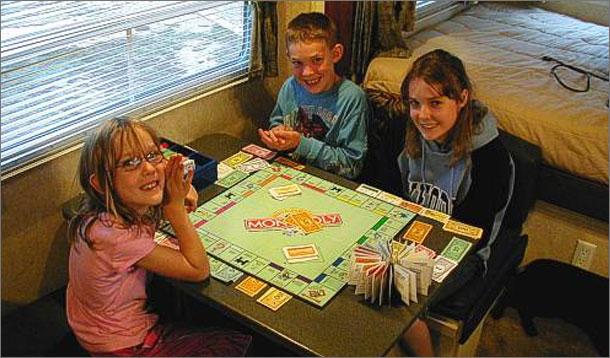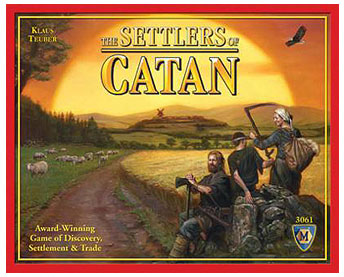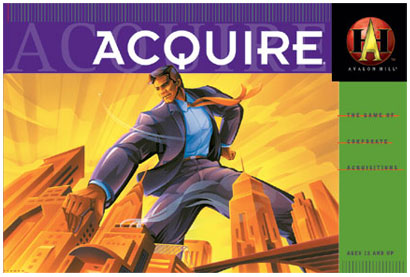
Our kids don't know enough about money. Sure, they know that it can buy things they want, from ice cream cones to video games. But most of them will reach adulthood with little or no comprehension of the really important aspects of money management: budgeting, credit, banking, saving, investing.
 That's why we wrote our new book, Money Savvy Kids. It's a guide for parents to use in helping their children understand how to use money wisely from an early age.
That's why we wrote our new book, Money Savvy Kids. It's a guide for parents to use in helping their children understand how to use money wisely from an early age.
One of the key themes of the book is "making it fun". We believe it's essential to involve kids in financial learning in ways they find enjoyable while being educational at the same time. Reading bedtime stories with a subtle financial theme is one way to do that. Books such as The Berenstain Bears’ Dollars and Sense, Benny’s Pennies, and Bunny Money work nicely.
Another approach is to play board games with them. These provide a great opportunity for family interaction while also offering teachable moments that the kids will remember in future years. Here are three games we like.

The old classic has been updated in several ways, including a new version that uses debit cards and an electronic banking unit in place of paper money. That speeds up the pace of play but eliminates the cash skills.
Must kids in the 7-8 age range are ready for Monopoly and it can be a valuable tool in helping to teach the basics of finance and investing. But it has to be played as a board game, where you're all sitting around a table together. Electronic versions won't work – the kids are isolated and there is no opportunity for parental interaction.
There are several money and life lessons that can be taught through Monopoly (but don't turn every game into a series of lectures, the idea is to have fun). Here are some:
![]() Sitting on cash does not win the game.
Sitting on cash does not win the game.
![]() You need to take some risks to make big profits.
You need to take some risks to make big profits.
![]() Risks need to be carefully thought out.
Risks need to be carefully thought out.
![]() If you overextend yourself by taking on too much debt through mortgages or spending too much cash you will be vulnerable if you are suddenly faced with a big bill.
If you overextend yourself by taking on too much debt through mortgages or spending too much cash you will be vulnerable if you are suddenly faced with a big bill.
![]() Trades need to benefit both sides or they are unlikely to be completed. There has to be a perceived win-win situation.
Trades need to benefit both sides or they are unlikely to be completed. There has to be a perceived win-win situation.
![]() The game is a combination of skill and luck. You can play well and still lose because the dice don't roll your way. Don't let your kids be discouraged by that. Life isn't always fair.
The game is a combination of skill and luck. You can play well and still lose because the dice don't roll your way. Don't let your kids be discouraged by that. Life isn't always fair.

The 9-11 crowd will love this award-winning game. It doesn't involve money per se but it teaches youngsters about the productive use of land and resources and how to utilize the wealth generated by them to build roads and communities.
The basic game is played with three or four players. The setting is the remote island of Catan. What makes this different from other board games is that the island can take on a different configuration each time. The game comes with 37 hexagonal region tiles (called hexes) which can be set up in any way the players desire within a sea border. Each tile represents a different type of terrain and produces its own resource, such as lumber, ore, wool, wheat, and bricks.
The goal is to accumulate resources and use them to build settlements, roads, and eventually cities. Each settlement or city enables a player to earn more resources. Players win points for the longest road. Resources can also be used to buy development cards. These award points for building churches, markets, libraries, an army, and more.
If the basic game is too complex, there is a simpler version called Catan: Junior which the makers say is suitable for children five and older. It takes place on a group of islands each of which generates a specific resource: wood, goats, molasses, swords, and gold. Players build ships and hideouts and try to stay clear of the Spooky Ghost Captain.

As kids grow older, they may want a game that's more complex and intellectually challenging. Acquire fits the bill. Like Monopoly, Acquire is about building hotels but that is where the similarity starts and ends. There are no dice and no pieces to move around a board. Luck plays a huge role in Monopoly ("How could you not land on any of my properties!"). But in Acquire, as in chess, intelligence, calculation, and the ability to see ahead several moves are the critical factors in winning.
The game is aimed at kids age 12 and older and requires three to six players (four works best). Playing time is about an hour and a half. The idea is to develop hotel chains by placing numbered tiles on a board. On each turn, players are given an opportunity to buy shares in the hotels. The smaller the chain, the cheaper the shares, plus some hotel groups are worth more than others. One of the key strategies is to identify which chains are most likely to grow, thereby increasing the value of their stock and the wealth of the player.
Mergers, which occur when a piece is played that joins two separate chains, provide big payoffs to the largest shareholders thus giving them more money to invest. In the end, the player with the most money (determined by the amount of cash and the value of all shares held) is the winner.
The concept is quite simple to grasp and kids who enjoy games will get into it very quickly. In our experience, there is always a lot of discussion afterwards about moves that could have changed the whole outcome—much like chess.
Those are just three examples. There are more in the book, as well as websites and apps that will help your kids gain financial smarts – all while keeping it fun.
 Wanna win Gordon and Deborah's book?
Wanna win Gordon and Deborah's book?
We’re giving away a copy of Money Savvy Kids to five lucky YMC members
All you have to do to enter is share your most pressing question on how to talk to kids about money in the comments section below.
You have until March 26, 2013 to enter. You must be a YMC member and please be sure you've registered your email address in our commenting system so we can contact you if you win.
And you could be featured in a YMC webisode!
Gordon and Deborah will be selecting some of your questions and personally answering them on YMC soon.
